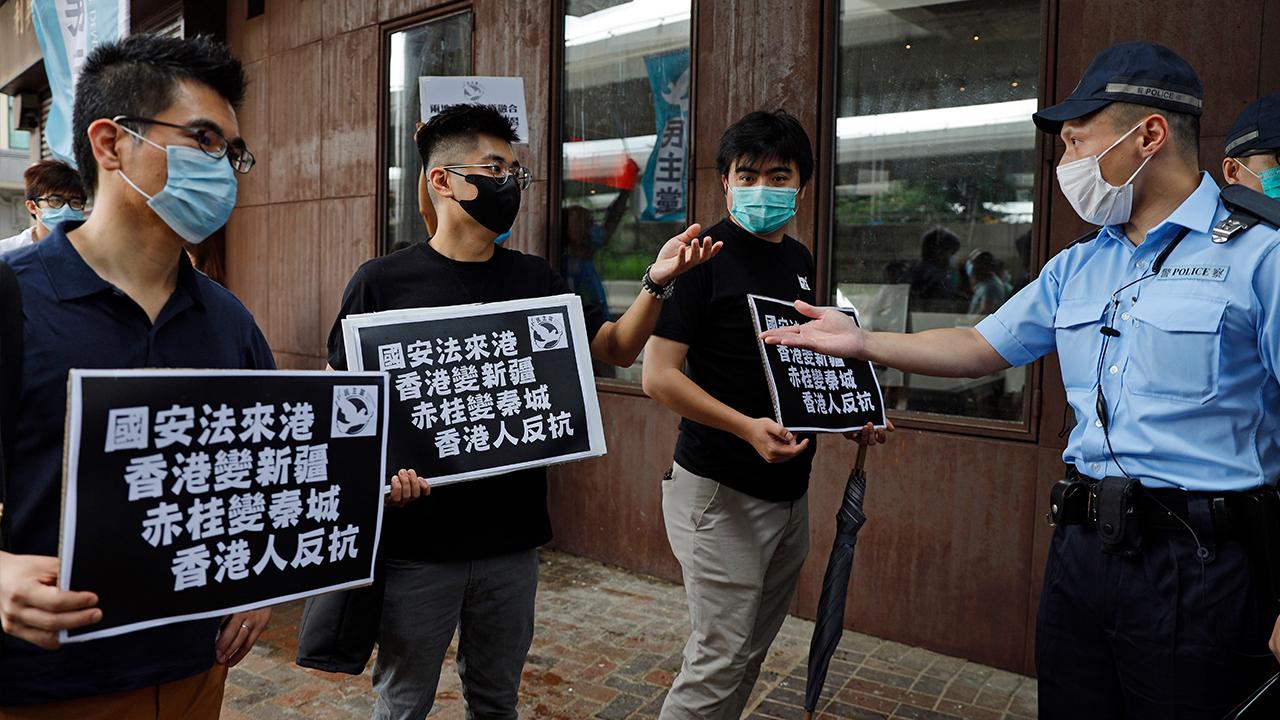Hong Kong's economic success at risk as Beijing tightens grip
'One country, two systems' is in jeopardy
Hong Kong’s future as a global city hangs in the balance as Beijing considers a national security bill that bypasses its legislature.
The measure, which goes against Hong Kong’s Basic Law that says such proposals must be passed by the city government, would quash the “one country, two systems” principle that has allowed the global financial hub to flourish since Britain’s 1997 handover to China.
“The erosion of Hong Kong’s autonomy will undermine the foundation of its economic success as an international city within China,” wrote Mark Williams, chief Asia economist at the research firm Capital Economics. “And it is a reminder that the priority of the party is control, even if it comes at an economic cost.”
HONG KONG BANKERS WORRY THAT NEW LAWS COULD LEAD TO CAPITAL FLIGHT
Hong Kong was ranked as the world’s third-most prominent financial center, trailing only New York and London, according to a May 2019 survey from global advisor Duff & Phelps.
Hong Kong’s economy was shoved into a recession last fall after months of pro-democracy protests when Beijing attempted to circumvent extradition laws, a move seen as a threat to the city's independence.
"The erosion of Hong Kong’s autonomy will undermine the foundation of its economic success."
The protests, which diminished sharply amid the outbreak of the COVID-19 pandemic but have since regained momentum, resulted in a sharp drop in visits from mainland China, the lifeblood of the economy. Mainlanders account for 76 percent of all tourist visits.
Hong Kong’s economy suffered further in the first quarter of this year. The city posted its steepest contraction on record, shrinking 8.9 percent year-over-year, as the pandemic disrupted activity and caused supply-chain disruptions.
Economic activity has shown signs of rebounding as officials proved able to contain the spread of the virus. However, the continuation of mass protests would delay the recovery and “pose a downside risk” to Capital Economics’ forecast of a 5.5 percent contraction in gross domestic product this year, Williams wrote.
CLICK HERE TO READ MORE ON FOX BUSINESS
The prospect of Beijing further tightening control over Hong Kong and governing it like mainland China could also imperil the special treatment the region has received under the 1992 U.S.-Hong Kong Policy Act.
U.S. Secretary of State Mike Pompeo said in a statement on Friday that any decision “impinging on Hong Kong’s autonomy and freedoms as guaranteed under the Sino-British Joint Declaration and the Basic Law would inevitably impact our assessment of 'One Country, Two Systems' and the status of the territory.”
Without the protection of the act, Hong Kong could lose access to sensitive U.S. technologies and fall subject to tariffs.
In addition, it would risk “being eclipsed by Shanghai in finance and other mainland ports in trade and logistics,” Williams wrote.




















